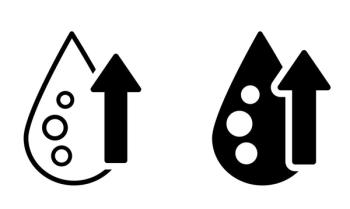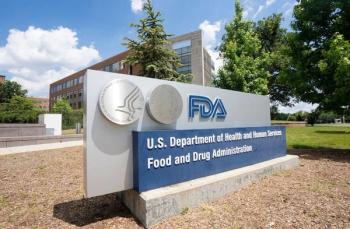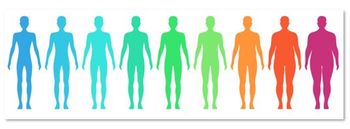
Postraumatic Stress Found Cardiotoxic in Older Veterans
BOSTON -- More severe posttraumatic stress disorder (PTSD) increased the risk of coronary heart disease and myocardial infarction in older male veterans, researchers reported.
BOSTON, Jan. 2 -- More severe posttraumatic stress disorder (PTSD) increased the risk of coronary heart disease and myocardial infarction in older male veterans, researchers reported.
The link between PTSD and coronary heart disease has long been suspected, but Laura Kubzansky, Ph.D., of the Harvard School of Public Health here, and colleagues, contend that their study appears to be the first to demonstrate a prospective association.
The findings came from a prospective analysis of 1,946 men, (ages 21 to 80) enrolled in the Veterans Affairs Normative Aging Study, the investigators reported in the January issue of the Archives of General Psychiatry. It was not clear whether the PTSD occurred during military or civilian lives.
Men included in the study completed either the Mississippi Scale for Combat-Related PTSD in 1990 with 9.8 years of follow-up, or the Keane PTSD scale in 1986 with 13.2 years of follow-up. Incident coronary heart disease was analyzed through May 2001. Men with preexisting coronary heart disease or diabetes at baseline were excluded.
Levels of PTSD symptoms in 1,002 men (mean age 63, SD 7.4) in the Mississippi cohort were low to moderate, the researchers reported. Of the men, 116 developed coronary heart disease over the follow-up period. There were 36 cases of incident nonfatal MI, 27 cases of fatal coronary heart disease, and 53 cases of angina.
Using the Mississippi Scale, the researchers found that for each standard deviation increase in symptom level, the men had an age-adjusted 26% increased risk of a non-fatal MI and fatal coronary heart disease combined (RR 1.26, 95% confidence interval, 1.05-1.51).
They also had a 21% increased risk for all coronary heart disease outcomes combined, including nonfatal myocardial infarction, fatal coronary heart disease, and angina (RR 1.21 (CI, 1.05-1.41).
The findings were replicated with 944 men using the Keane PTSD scale and somewhat strengthened after controlling for levels of depressive symptoms.
This pattern suggests that individuals with more severe PTSD are not simply prone to reporting greater chest pain or other physical symptoms but may well be at higher risk of developing coronary heart disease, Dr. Kubzansky said. "It is striking," she added, "that the results were maintained after controlling for depressive symptoms and were similar with two different measures of PTSD symptoms."
Despite the consistency of the results, the effect of PTSD symptoms on the risk of coronary heart disease appeared to be somewhat modest, the researchers noted. This suggested that power was somewhat limited with only a modest number of cases, quite small numbers of fatal coronary heart disease, and low levels of PTSD symptoms in the cohort.
However, they wrote that the findings suggest a dose-response relationship. For each standard deviation increase in symptoms, there was a significant increase in the risk of developing coronary heart disease. If the effects of symptoms are cumulative, with more symptoms conferring increased risk, then these results may be viewed as conservative, they said.
The study is consistent with a model of prolonged stress reaction that suggests impaired adaptation and increased wear and tear on the body, which may lead to atherosclerosis and cardiovascular damage, the authors said. Biological mechanisms by which PTSD may influence coronary heart disease have yet to be determined, but a number of pathways are possible, they suggested.
Although smoking and alcohol consumption are more common among those with PTSD, the researchers controlled for smoking, family history of coronary heart disease, cholesterol levels, and levels of education, making it unlikely that these factors could fully account for the findings. They suggested that because data on other relevant health related variables, such as exercise frequency, were not available, further study is needed to help explain the relationship found in this study.
Other studies, they said, have considered the neuroendocrinology of PTSD and have suggested that it is often characterized by negative feedback sensitivity in glucocorticoid receptors in the stress response system. Exaggerated catecholamine responses to trauma-related stimuli have also been found in adult patients with PTSD, they wrote.
A strength of the present study is the use of an objectively determined verified outcome and information on a range of potential confounders. Still, the investigators noted that these findings pertain largely to older white men who served in the military and thus cannot be generalized to women, nonwhite populations, or civilians.
Other limitations relate to the assessment of PTSD symptoms, which relied on self-report scales, the lack of information on the frequency and duration of PTSD symptoms, and the lack of specific information on exposure to trauma, which could have occurred either in the military or in civilian life. However, the prospective nature of the data collection, with the assessment of PTSD well before coronary outcomes, strengthens the findings, the researchers said.
Newsletter
Enhance your clinical practice with the Patient Care newsletter, offering the latest evidence-based guidelines, diagnostic insights, and treatment strategies for primary care physicians.

































































































































